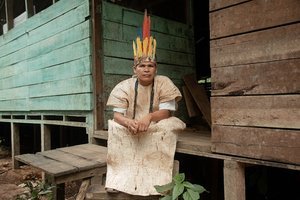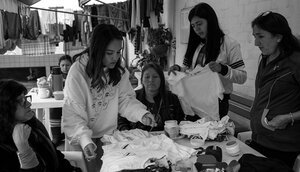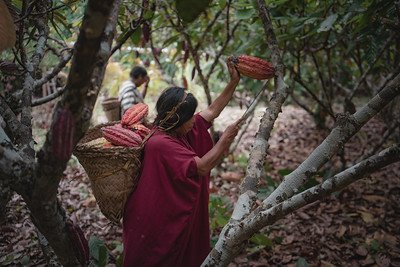
AFIMAD
AFIMAD (The Indigenous Forestry Association of Madre de Dios) is an association formed by Amazon nut collectors as an alternative solution to the unsustainable

Café Origenes
Café Origenes' mission is to sell traceable, ethically-sourced specialty coffee and ensure fair pay for producers who are often excluded from the traditional coffee value chain. Today it supports 64 coffee growers and their families.

Café Compadre
provides small coffee farmers with solar-powered technology to roast their beans, and purchases and distributes the roasted coffee, resulting in 70% more revenue for the farmers.

Corpapa
Coordinadora Rural de la Papa del Perú (CORPAPA) was founded to support the livelihoods of traditional potato farmers in Ayacucho.

Empanacombi
produces high-quality empanadas that are sold in coffee shops and convenience stores throughout the country

Estrafalario
Trains and employs survivors of domestic violence and women who are incarcerated to produce a line of trendy ethical fashion products.

Kanuja
Kanuja was established to eliminate intermediary exploitation and ensure fair prices for coffee and cacao growers. Representing 57 communities, Kanuja plays a vital role in the region’s economic development through sustainable agriculture and community-based business.

Kemito Ene
Kemito Ene is an Indigenous-led cooperative of producers of the Asháninka nationality, from the Ene River basin, dedicated to the sustainable production and marketing of certified organic and fair-trade cacao beans, cacao-derived products, chocolate, and roasted and ground coffee beans.

Llama Pack
Runs a Llama Trek Service, Intercultural Education Programs, and a Llama Park to support high-Andean communities with accessing sustainable income.

Kotsimba Lodge
Kotsimba Eco Lodge SAC is a community-based ecotourism enterprise that offers immersive nature and cultural tourism experiences, from full-day tours to extended packages with overnight stays.

Plastic Corporation
Plastic Corporation uses single-use plastic waste and reclaimed plant fibers as an alternative to lumber to make products such as furniture, playground equipment, and construction materials, contributing to a robust local circular economy.













